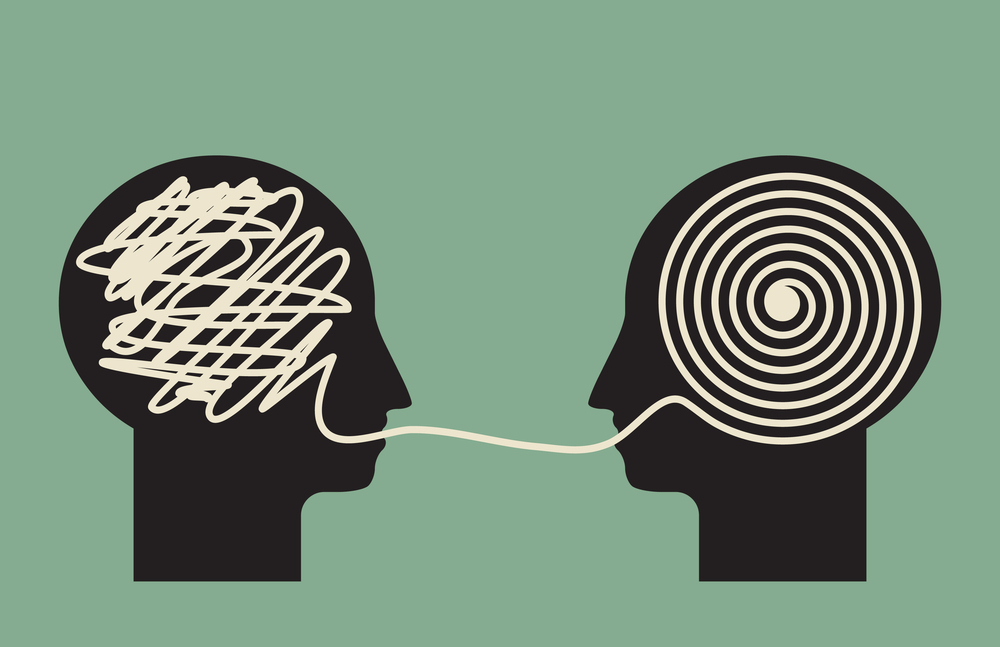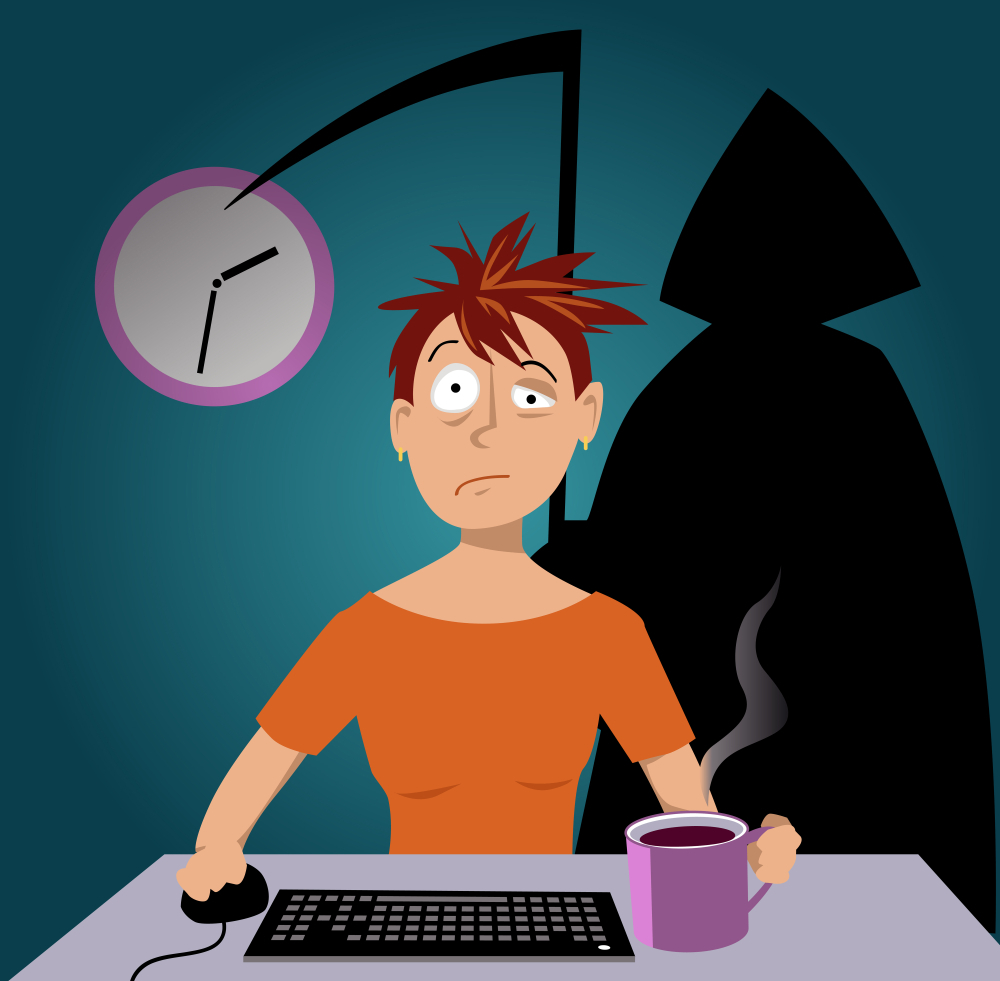How Sleep Deprivation Affects Your Health?
A growing number of studies have linked chronic sleep deprivation to serious health problems.

Diabetes.
According to a study published in Diabetes Care, people who suffer from chronic insomnia (sleep deprivation) have a significantly increased risk of developing type 2 diabetes. People who had insomnia for a year or longer and slept less than five hours per night were three times more likely to develop type 2 diabetes than those who had no sleep complaints and slept six or more hours per night.
The underlying cause is thought to involve a disruption of the body’s normal hormonal regulation, as with overweight and obesity (which are also closely linked to type 2 diabetes), but in this case, it results from insufficient sleep.
High blood pressure.
The diabetes study’s researchers also assessed the risk of high blood pressure in the same group of people, which included more than 1,700 randomly selected men and women from rural Pennsylvania.
The researchers discovered that the risk of high blood pressure was three and a half times higher among insomniacs who routinely slept less than six hours per night compared to normal sleepers who slept six or more hours per night, as described in the journal Sleep.
Heart disease.
Several studies have linked sleep deprivation to several well-known risk factors for heart disease, including higher cholesterol, triglyceride levels, and blood pressure. People who do not get enough sleep have higher blood levels of stress hormones and substances that indicate inflammation, both of which play a role in cardiovascular disease.
According to some research, chronic sleep deprivation (fewer than four hours of sleep per night) may double a woman’s risk of dying from heart disease.
Sleep apnea, a common cause of poor sleep, also increases the risk of heart disease. Low oxygen and high carbon dioxide levels that occur during apnea-disturbed sleep raise stress hormone levels. This raises blood pressure and heart rate, putting the cardiovascular system under strain.
Sleep apnea appears to increase the risk of having a heart attack, having a heart failure, and having a heart rhythm disorder such as atrial fibrillation. People with moderate to severe sleep apnea are three times more likely to have a stroke than those who do not have the condition.
During the 18-year follow-up period of the Wisconsin Sleep Cohort study, people with severe sleep apnea were three times more likely to die of heart disease than those without apnea. When researchers excluded those who used a breathing machine (a common apnea treatment), the risk increased by more than fivefold. Apnea spells can cause arrhythmias (irregular heartbeats), and the condition also increases the risk of stroke and heart failure.
Mental illness.
A study of about 1,000 adults aged 21 to 30 found that those who reported a history of insomnia (sleep deprivation) during an interview were four times more likely to develop major depression three years later than those who did not.
In addition, two studies in young people, one involving 300 pairs of young twins and the other involving approximately 1,000 teenagers, discovered that sleep problems frequently developed prior to a diagnosis of major depression and (to a lesser extent) anxiety. Teenage sleep problems preceded depression 69 percent of the time and anxiety disorders 27 percent of the time.
Dementia.
A growing body of research suggests that sleep disturbances may increase the risk of Alzheimer’s disease developing. According to a report that compiled findings from 27 observational studies, people who had sleep problems were nearly 1.7 times more likely to develop cognitive impairments or Alzheimer’s disease than people who did not have sleep problems.
Sleep, according to experts, helps clear the brain of amyloid, the protein thought to damage nerve cells in Alzheimer’s. A 2018 study published in JAMA Neurology discovered that older people who slept excessively during the day were more likely to have increased amyloid in their brains over time. However, it is unclear whether sleep disruption contributes to amyloid buildup or vice versa.
Viral infections.
Anecdotal evidence suggests that getting sick is more likely when you’re tired and run down. A study published in the Archives of Internal Medicine provides some evidence. For two weeks, researchers monitored the sleeping habits of 153 men and women, then quarantined them for five days and exposed them to cold viruses. People who slept for less than seven hours per night were three times more likely to become ill than those who slept for at least eight hours.
Weight gain.
According to a review article published in the journal Obesity that analyzed findings from 36 studies, not getting enough sleep increases your chances of gaining weight. The link appears to be particularly strong in children.
Inadequate sleep disrupts hormones that control hunger and appetite, causing you to consume hundreds of extra calories per day—particularly quickly digested carbohydrates. Furthermore, the resulting daytime fatigue frequently dissuades you from exercising. Excess weight, in turn, raises the risk of a variety of health issues, including some of those mentioned above.
Sleep to solve a problem :
“Take some time to sleep on it. In the morning, everything will look better.”
This advice, often given by a parent, is given with love and good intentions, but it still makes us roll our eyes because we just want to sleep — not think about it, not weigh our options. We don’t want to have to wait until tomorrow.
But…?
“We all do it,” says Dr. Robert Stickgold, a psychiatry professor at Harvard Medical School. “While we sleep, we solve problems.”
More importantly, we are expected to. The brain is doing its nighttime job of connecting dots, so when we wake up, we have a different perspective. It can feel stressful, but rather than fighting it, there are ways to accept the nightly review of the day so that it does not become a sleepless assessment of our entire lives.
The first step is to comprehend how it works.
How does the brain solve problems while sleeping?

When you’re awake and trying to solve a difficult problem, taking a piece of paper and listing the pluses and minuses is a common approach. However, there are usually too many items and you don’t know how to adequately rate the importance of each one, so “it doesn’t help you.”- Stickgold says.
When you go to bed, however, your brain performs triage and “rifles through the events of the day to see what’s left unfinished,” he says. It is identifying what has a “effective buzz,” or the emotions that occurred during or shortly after something occurred. The brain interprets these memory “tags” as indicators that the event was significant and that there is more to learn. In essence, the brain is saying, “I believe I can assist you.”
How is this possible?
This is made possible by two factors. The prefrontal cortex is turned off. This part of the brain is in charge of executive decision-making (which includes rational thinking and impulse control), but there is no critical edge or categories for ideas to be placed in. As Stickgold puts it, the brain can freely associate and “process in the background.”
Little is known about what happens when serotonin is depleted, but it causes the brain to value loose connections. When both neurochemicals are suppressed, ideas can coalesce. “You have aided in the discovery of weak associations that you would never have noticed,” Stickgold says.
As a result, you may wake up the next day thinking, “I don’t want to take a job in Iowa,” or “yeah, Iowa.” It can feel like a gut decision that you can’t explain. It’s also possible that this isn’t the final version, but something has changed. “You’re not in the same place you were when you went to sleep,” Stickgold says, adding that it can’t all be explained and that science can’t determine whether what you decide is correct. “It’s an illogical process.”
Staying up late to solve a problem does not work.

You could be the type of person who goes over problems over and over again while waiting for sleep. The brain wants to see a thought and move on to the next one before you fall asleep. What you may end up doing is latching on to one thought, then ruminating; regrets begin to creep in, triggering a rush of adrenaline that can take 10 to 15 minutes to burn off.
It is beneficial to acknowledge a thought and allow it to continue moving, similar to the meditation practice of observing thoughts without judgment. There are several imagery devices that can be used, such as using a ticker-tape or balloon to transport it, or putting it on a tee and knocking it down the fairway. The important thing is to recognize that the mere existence of thought is not a problem.
What to do if the thoughts persists?

However, if the thoughts persist, there are steps that can be taken to calm them down. “There’s nothing wrong with getting up and checking,” Stickgold says. If you’re worried about whether the garage door is closed or the oven is turned off. Keep a notepad by your bed and jot down a reminder for tomorrow for less immediately fixable issues. If you’re worried about forgetting a specific idea, this gets it out of your head. And it ensures you’ll remember it in the morning.
Getting up in the middle of the night to “work” on a problem does not help. You just end up exhausted the next morning, and you’re no closer to making a decision or finding a solution. The solution, however uncomfortable it may feel at first, is to let the thought parade pass.
“Look at the period of worry as a gift,” Stickgold advises. “It prepares the brain to take issues and organize them for an incredibly productive eight hours. In some ways, it’s quite elegant.”
Also Read : How To Sleep To Lower Your Risk Of Dementia And Death. – V Cure (vcurehealthcare.com)





